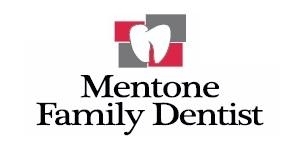
Optimal health encompasses more than just teeth; it involves the entire body. Chronic mouth breathing is a common but often overlooked issue that can impact more than just oral health—it affects overall well-being. This blog explores the deep-seated causes, significant health implications, and effective treatments for mouth breathing, aiming to foster healthier breathing habits and holistic wellness.
What is Mouth Breathing and Is It Normal?
Mouth breathing refers to inhaling and exhaling through the mouth rather than the nose. While it's normal during certain activities like heavy exercise or when you have a temporary blockage in your nasal passages due to a cold, persistent mouth breathing, especially in children, can trigger a range of health issues.
Causes of Mouth Breathing
Anatomical Causes: These include structural blockages in the nasal passages, such as from chronic sinusitis or a deviated septum, that impede normal nose breathing.
Habitual Causes: Some individuals develop a habit of mouth breathing during early childhood due to prolonged nasal congestion.
Medical Conditions: Conditions like asthma and obstructive sleep apnoea can exacerbate mouth breathing, making it more frequent and problematic.
Consequences of Chronic Mouth Breathing
Chronic mouth breathing can have several detrimental effects on health and development:
Developmental Issues in Children: Persistent mouth breathing can influence the growth patterns of the face and jaw, leading to orthodontic problems and altered facial aesthetics.
Health Risks: These include dry mouth, which increases the risk of gum disease and tooth decay and can also lead to chronic bad breath and a higher likelihood of respiratory infections.
Importance of Nose Breathing
Breathing through the nose is beneficial for several reasons:
Filtration: The nose acts as a filter, trapping dust and other particles from the air before they enter the lungs.
Humidification: The nasal passages humidify the air, which protects the airways and enhances lung health.
Production of Nitric Oxide: The nasal cavity produces nitric oxide, a critical component that helps with oxygen exchange in the lungs and supports the immune system by enhancing the body's ability to fight infections.
Addressing Mouth Breathing
Identifying the root cause of mouth breathing is critical to determining the most effective treatment plan. Treatment often involves a collaborative approach:
Collaborative Care: We work alongside ENT specialists, pediatricians, and other healthcare professionals to ensure comprehensive care that addresses all potential factors contributing to mouth breathing.
Dental Interventions: Depending on the cause, treatments might include orthodontics to correct misalignments that may be promoting mouth breathing, or even surgery in more severe cases.
Lifestyle Adjustments: Simple changes in daily habits, such as ensuring the nasal passages are clear before sleep, can significantly improve breathing patterns.
Importance of Early Intervention
For children especially, it's vital to address mouth breathing early to prevent long-term developmental and health issues. Early detection and treatment can lead to better health outcomes and prevent the progression of symptoms.
Mouth breathing is a seemingly simple issue that can have profound effects on one's health and quality of life. At Mentone Family Dentist, we're committed to helping our patients understand and manage their breathing patterns to enhance their overall health and well-being. If you or your child are experiencing symptoms of mouth breathing, don't hesitate to reach out. Together, we can take proactive steps towards a healthier life.
Ready to breathe easier? Contact Mentone Family Dentist today and let us help you take the first step towards a healthier you.
